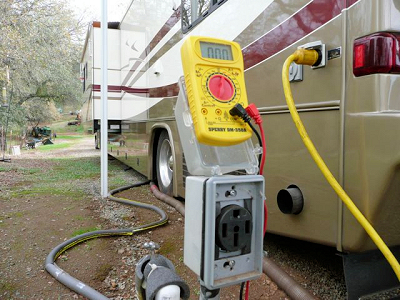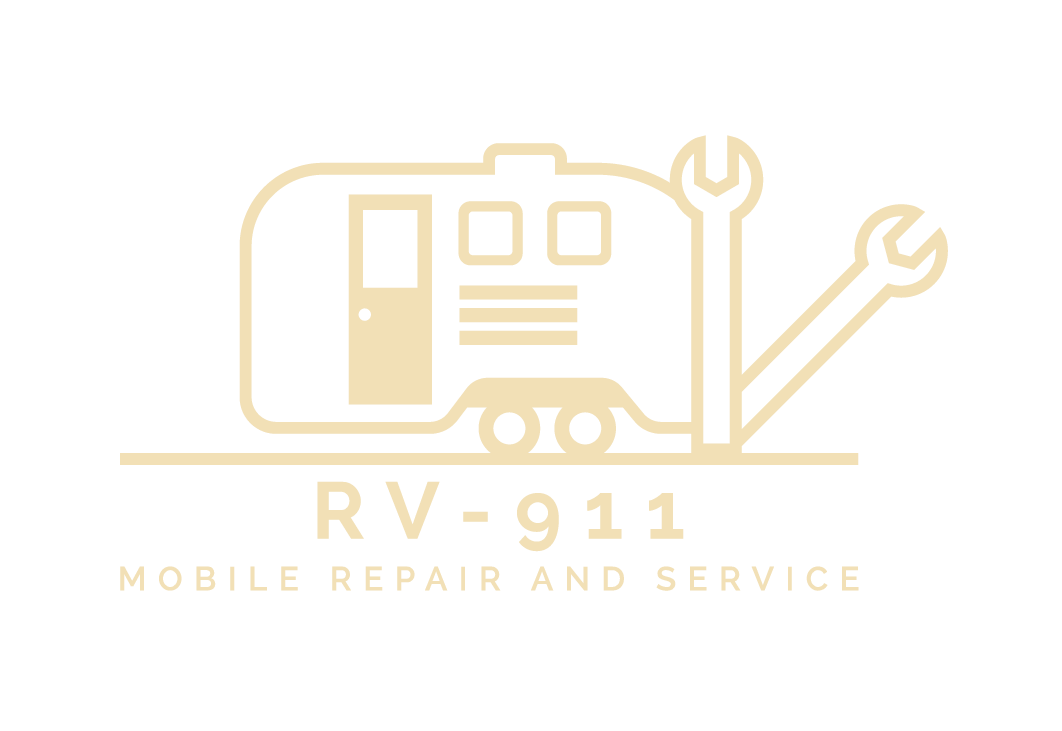Welcome to our comprehensive guide to RV electrical repairs. Does your camper need a RV electrical repair? From understanding the various electrical systems in your RV or camper to troubleshooting common problems and implementing effective solutions, this guide will equip you with the knowledge and skills needed to keep your electrical systems running smoothly on the road.
Understanding RV Electrical Systems
1. 12-Volt DC System:
- The 12-volt DC system powers essential components of the RV, including lights, water pump, slide-outs, and vent fans. It is typically supplied by a deep-cycle battery or batteries and is charged by the RV’s converter or alternator when connected to shore power or running the engine.
2. 120-Volt AC System:
- The 120-volt AC system provides power to appliances, outlets, air conditioners, and other high-demand devices when the RV is connected to shore power or running a generator. It consists of a distribution panel, circuit breakers, outlets, and wiring designed to handle higher voltage and current loads.
3. Converter/Inverter:
- The converter converts 120-volt AC power from shore power or the generator into 12-volt DC power to charge the RV’s batteries and power DC appliances. The inverter, on the other hand, converts 12-volt DC power from the batteries into 120-volt AC power to run AC appliances when shore power or a generator is not available.
4. Solar Power System:
- Many RVs are equipped with solar panels and a charge controller to harness solar energy and charge the batteries. Solar power systems can supplement or even replace traditional shore power and generator usage, providing clean and renewable energy for RV appliances and electronics.

Common RV Electrical Problems and Solutions
1. Dead Battery:
- Problem: A dead or discharged battery can result from extended periods of storage, excessive power consumption, or a faulty charging system.
- Solution: Check battery connections, charge the battery using shore power, generator, or solar panels, and replace the battery if necessary.
2. Blown Fuses or Tripped Breakers:
- Problem: Blown fuses or tripped circuit breakers can occur due to overloaded circuits, short circuits, or faulty appliances.
- Solution: Identify the affected circuit, locate the fuse or breaker panel, replace blown fuses or reset tripped breakers, and investigate the cause of the overload or short circuit.
3. Faulty Converter/Inverter:
- Problem: A malfunctioning converter or inverter can lead to insufficient charging of batteries, erratic power output, or complete power loss.
- Solution: Test the converter/inverter output voltage, inspect connections and wiring for damage or corrosion, and replace the unit if necessary.
4. Overheating Wiring:
- Problem: Overheating wiring can occur due to loose connections, undersized wires, or excessive current draw, posing a fire hazard.
- Solution: Inspect wiring for signs of overheating, tighten loose connections, upgrade wiring gauge if necessary, and redistribute loads to prevent overheating.
5. Inoperative Appliances:
- Problem: Appliances such as refrigerators, air conditioners, and water heaters may fail to operate due to electrical issues or component failures.
- Solution: Check power supply to the appliance, inspect wiring and connections, test individual components for faults, and repair or replace faulty parts as needed.
6. Solar Panel Issues:
- Problem: Solar panels may underperform or fail to charge the batteries due to shading, misalignment, or defective components.
- Solution: Clean solar panels regularly, ensure proper alignment and orientation for maximum sunlight exposure, and troubleshoot individual components such as charge controllers and wiring connections.
Click for some RV Electrical Repair videos.
Conclusion
Maintaining and troubleshooting RV electrical systems requires a combination of knowledge, skills, and attention to detail. By familiarizing yourself with the various electrical components and their functions, as well as common problems and solutions, you can effectively address issues as they arise and ensure a safe and reliable electrical system in your RV or camper. If you need a RV electrical repair please call us today!
Remember to prioritize safety at all times when working with electrical systems, and don’t hesitate to seek professional assistance if you encounter complex or hazardous situations beyond your expertise.
With proper maintenance, periodic inspections, and proactive troubleshooting, you can enjoy worry-free travels and adventures on the road, powered by a robust and reliable electrical system in your RV.
Explore our website for more tips, guides, and resources on RV maintenance and repair. Safe travels!
